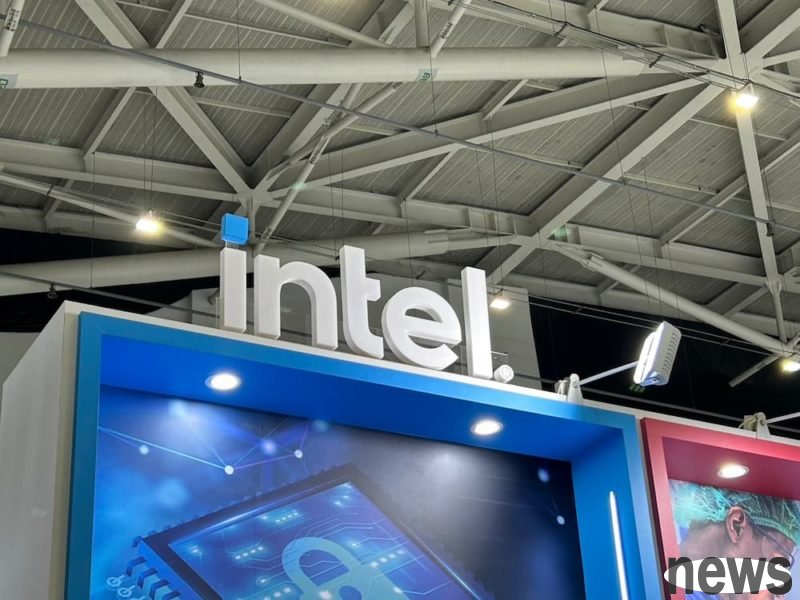According to Bloomberg, several people familiar with the matter pointed out that Intel has taken the initiative to contact Apple to seek investment in the chip manufacturer that is in trouble. Moreover, in addition to discussing potential investment...
 According to Bloomberg, several people familiar with the matter pointed out that Intel has taken the initiative to contact Apple to seek investment in the chip manufacturer that is in trouble. Moreover, in addition to discussing potential investment matters, Intel and Apple also think about how to cooperate more closely. However, these discussions are still in the early stages and may not necessarily reach any agreement in the future. After the news came out, the market's response to Intel was positive, with stock prices rising 6.4% on the US stock market and closing at $31.22. In comparison, Apple shares fell about 1% and closed at $252.31.
According to Bloomberg, several people familiar with the matter pointed out that Intel has taken the initiative to contact Apple to seek investment in the chip manufacturer that is in trouble. Moreover, in addition to discussing potential investment matters, Intel and Apple also think about how to cooperate more closely. However, these discussions are still in the early stages and may not necessarily reach any agreement in the future. After the news came out, the market's response to Intel was positive, with stock prices rising 6.4% on the US stock market and closing at $31.22. In comparison, Apple shares fell about 1% and closed at $252.31.
After Intel has continuously obtained major external investment, it further sought Apple investment. Just last week, GPU manufacturer NVIDIA (Nvidia) announced a $5 billion investment in Intel and plans to cooperate with Intel in the chip field of personal computers and data centers. In addition, the SoftBank Group, a Japanese technology manufacturer seeking to further expand its business in the United States, also announced last month that it would invest $2 billion in Intel. Intel has also been in contact with other companies regarding possible investment and partnerships, people familiar with the matter said.
If we can reach an agreement with Apple, even if it is only investment rather than chip supply, Intel's efforts to test map twisting will be further verified. Intel is currently viewed by the U.S. government as a key component to revitalize local semiconductor production. In August, the Trump administration acquired about 10% of Intel's shares through a non-traditional transaction mediated.
Apple was a long-term Intel customer. Intel and Apple have a long history of cooperation, but have also experienced friction and tension. Apple has used Intel chips in its Mac computers for many years, but began to gradually shift to self-designed supply in 2020, which is also part of Apple's more extensive adoption of self-developed zero-assembly strategies. Prior to that, Apple purchased most of Intel's base frequency chip business in 2019. While the two companies are currently discussing investment and cooperation, sources believe that Apple is unlikely to redirect it to Intel processors in its equipment. Currently, the most complex and cutting-edge chips of this iPhone manufacturer are designed by themselves and are produced by partner Tel.
Even though Intel has received financial support from the US government, the challenges faced are still very serious. The company has lost its long-term technical advantages and has slapped a large number of market share to rivals including Ultramicro Semiconductors (AMD). In addition, Intel's market-red AI chip sellers cannot achieve their advantages, but this is the main area of NVIDIA (Nvidia). Intel used to be a chip manufacturer that led the market, but now it accounts for only a small part of NVIDIA's share of its revenue and market. In order to face constant vicious financial situation a few days ago, Intel has implemented layoffs and extended the established GRF factory expansion plan.
Under the leadership of former executive Pat Gelsinger, Intel set a goal to transform into a crystalline foundry factory, which is to specialize in the manufacturing of semiconductors for external customers. However, Intel has been unable to secure enough customer orders to support its grand factory expansion plan. Later, after the new executive chairman Chen Liwu took over, Intel tried to make a comeback with the support of the federal government and continued to implement the OEM strategy, but his attitude was obvious and more cautious. Chen Liwu said in July that Intel will only launch the technology if its customers promise to use the new cutting-edge production technology (Intel 14A). However, after gaining a stake in the Trump administration, investors became happy about Intel's prospects. Since early August, the company's share price has accumulated more than 60%.
Most of Apple production is still concentrated overseas, but in recent years, it has been continuously emphasizing the focus of local manufacturing in the United States. At the White House event in August, Apple announced that it would invest $60 billion in domestic production in four years, higher than the $50 billion promised previously. The core is the investment of Conning, a long-term glass supplier for Apple, for US$2.5 billion.
Apple executive chief Tim Cook said investment can encourage other companies to increase production in the United States and produce domino effects. When asked about Intel's development, Kuksch said he believes market competition will be beneficial to chip foundry. Kuck emphasized that we were happy to see Intel return. However, as the report was exposed, Intel refused to make any comments, and Apple did not explain the report.